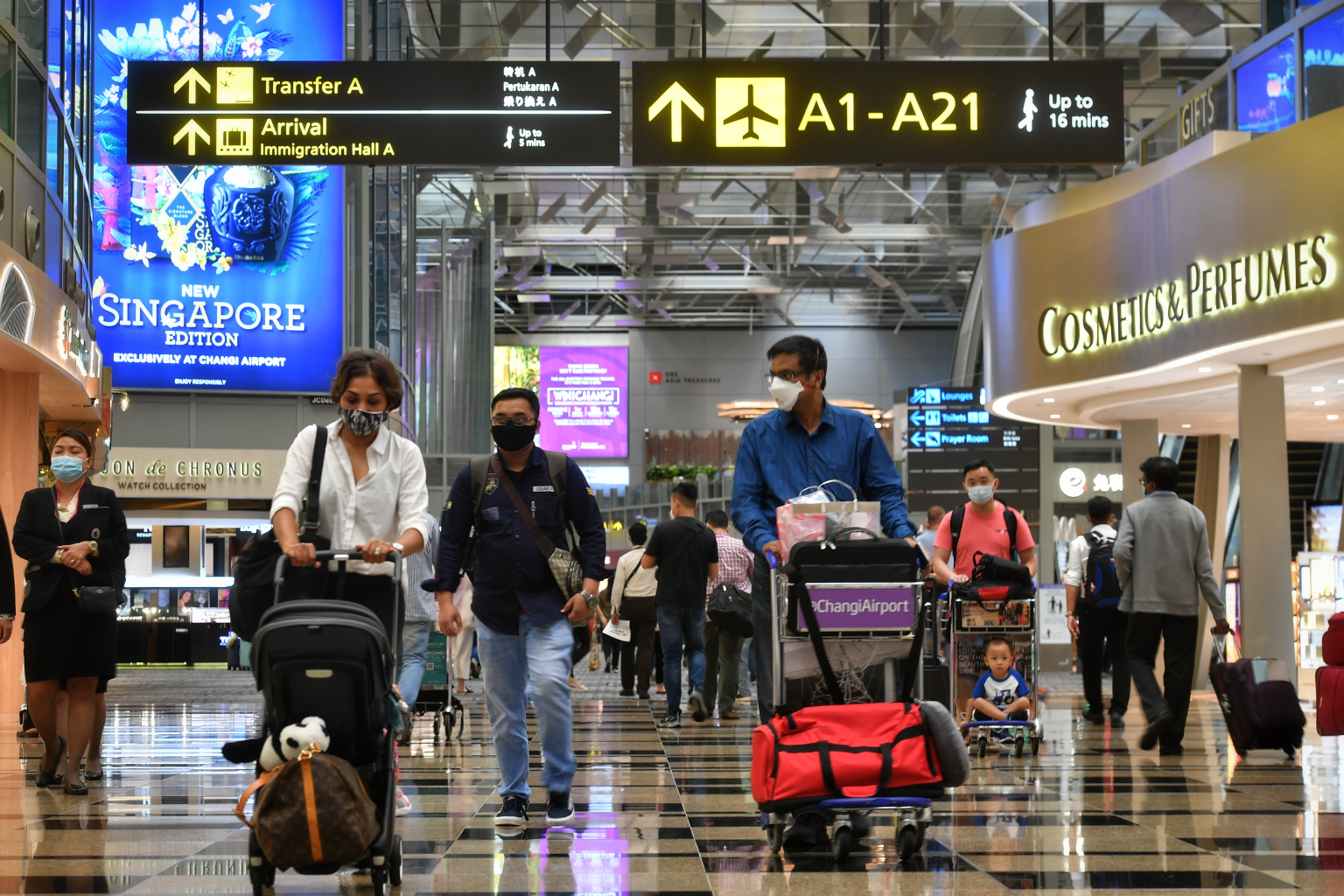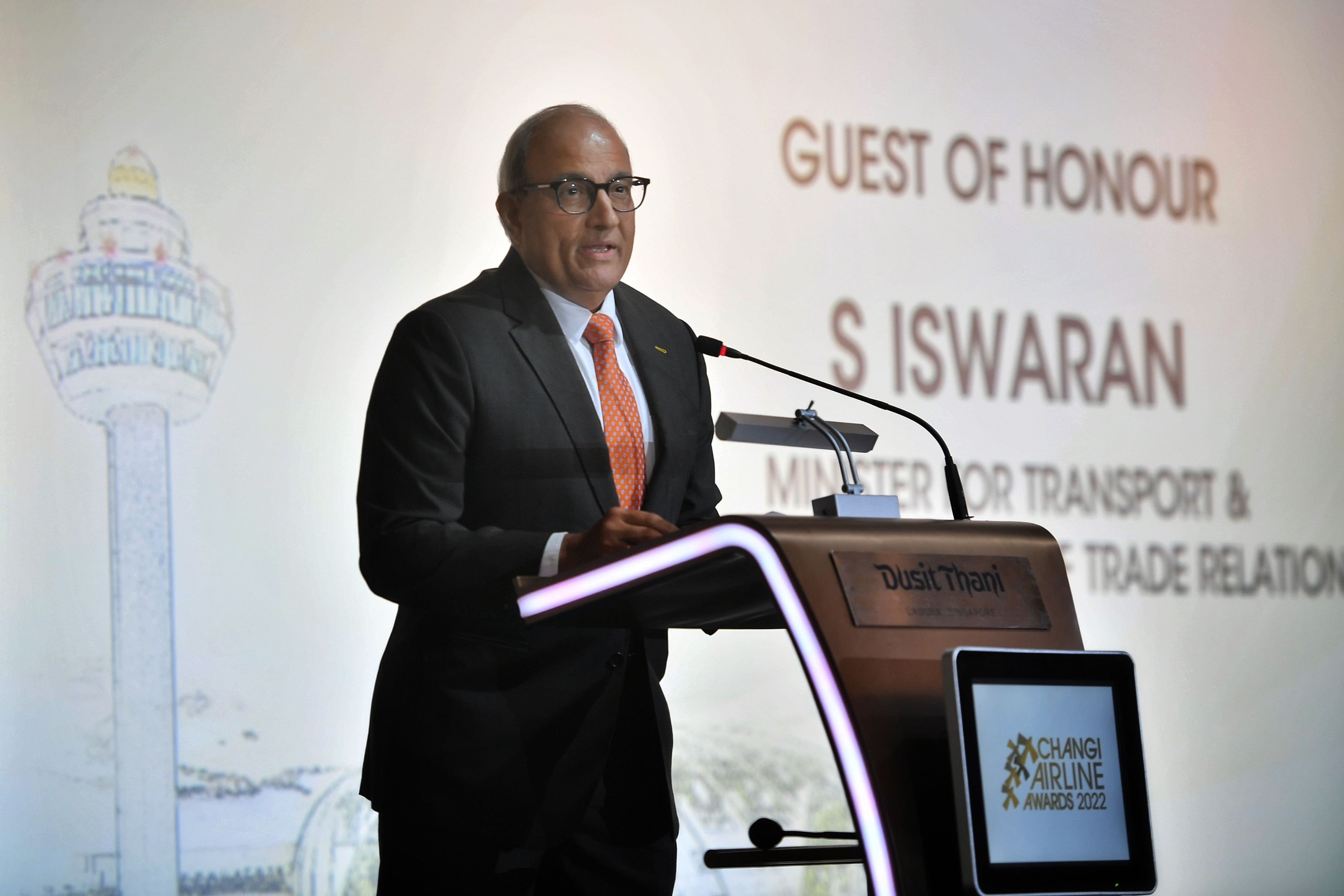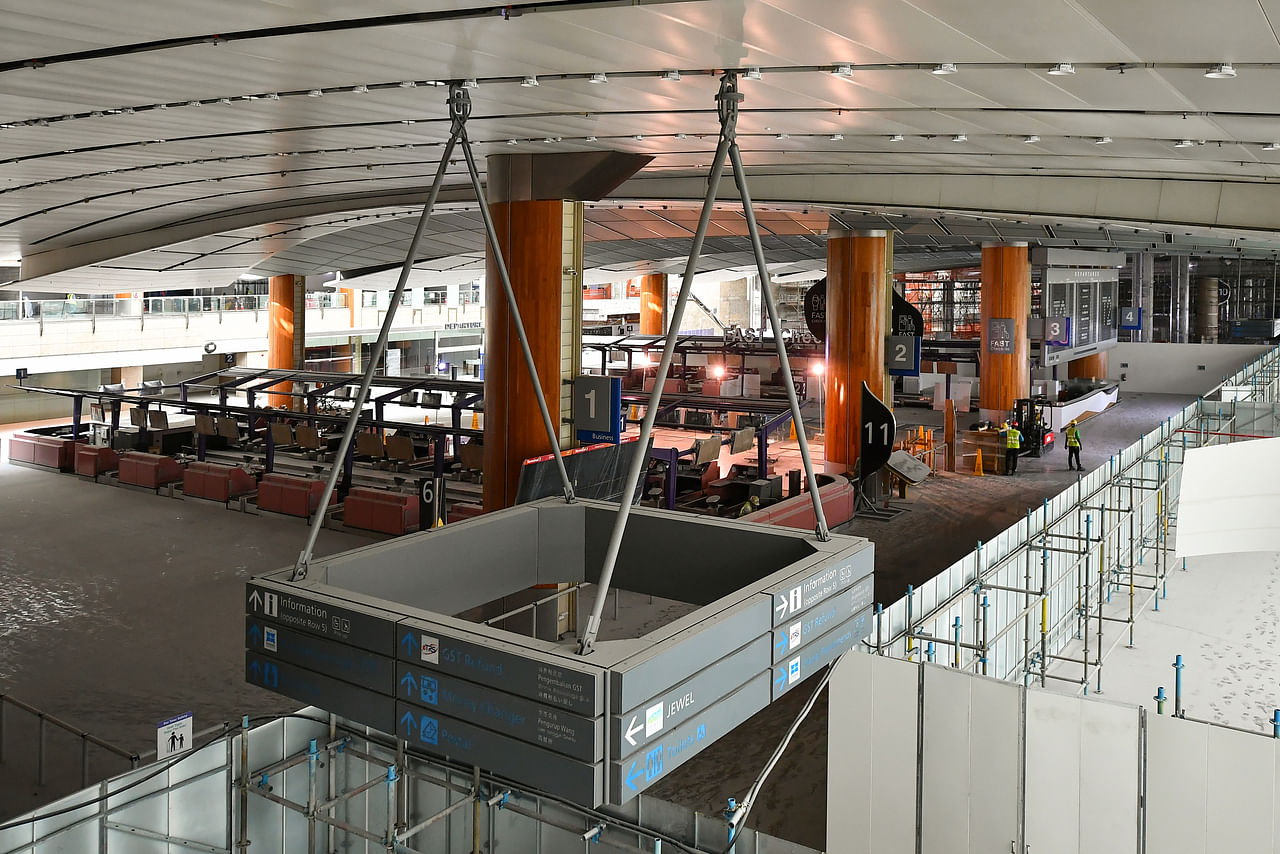Passenger volume at Changi Airport doubled in April to reach 40% of pre-Covid-19 levels
Sign up now: Get ST's newsletters delivered to your inbox

Singapore reopened its borders fully to travellers vaccinated against Covid-19 on April 1.
ST PHOTO: CHONG JUN LIANG
Follow topic:
SINGAPORE - Passenger traffic at Changi Airport more than doubled in April from the previous month, approaching 40 per cent of pre-pandemic levels, said Transport Minister S. Iswaran on Wednesday (May 4).
This comes a month after Singapore reopened its borders fully to travellers vaccinated against Covid-19 on April 1.
In contrast, passenger movements at Changi in March reached just 18 per cent of pre-Covid-19 levels, said the minister, who was speaking at the Changi Airline Awards at Dusit Thani Laguna Singapore in Changi South.
The event was being held for the first time in two years after a pandemic-induced hiatus.
About 1.14 million passengers passed through the airport in March, the first time the one million mark was crossed since borders were shut two years ago due to Covid-19.
April's passenger movement numbers take Singapore to touching distance of achieving its target to restore passenger volumes at the airport to at least 50 per cent of pre-Covid-19 levels by the end of the year.
Before the pandemic struck in 2020, 68.3 million travellers passed through Changi Airport.
However, Mr Iswaran said on Wednesday that ramping up airport operations to quickly meet the renewed travel demand is no mean feat.
He warned the aviation sector here against underestimating the enormity of the challenge, which has been seen in airports around the world.
The Straits Times reported last week that a small number of flights over the May Day long weekend had to be retimed to spread them apart during the extremely high peak periods.
Changi Airport Group (CAG) said then that it was increasing its capacity and working closely with its partners to smoothen on-ground operations.
In March, Mr Iswaran said that the number of workers in the air transport sector was at about two-thirds to three-quarters of pre-pandemic figures.
He said on Wednesday: "I know the ramp-up has and continues to pose significant challenges, given the scale and complexity of operations at a global air hub like Changi.
"I also know our aviation partners are doing their level best and going to extraordinary lengths to get the job done."
He added: "You have our full support. I am confident that by working together as one aviation ecosystem, we will bring back the distinctive and seamless experience that is the hallmark of Changi."
Beyond the immediate recovery efforts, the minister said, it is important that Singapore's air hub thrives in the post-pandemic world.

Connectivity is key to this, and Singapore is committed to growing the network at Changi with airlines' partners, said Mr Iswaran.
He added: "We must not only restore our previous links, but go beyond to expand the network, densify schedules, and forge new partnerships with airlines."
The minister said he was encouraged that seven new passenger airlines set up shop here last year, even amid the global pandemic, and that new passenger city links were also set up with Bahrain and Vancouver.
Meanwhile, average cargo aircraft movements at Changi have tripled since the start of the pandemic. The airport also gained six new scheduled freighter operators, while DHL Express and FedEx also expanded their networks here, Mr Iswaran added.
"I am confident that more opportunities lie ahead for Changi to bring value to cargo customers, amid ongoing disruptions to global supply chains and the expansion of e-commerce," he said.
"We will continue to work with the air cargo community to develop new growth levers, such as multimodal connectivity, and accelerate digital transformation and information sharing in our ecosystem."
As at May 1, 82 airlines operate more than 3,300 weekly scheduled flights at Changi Airport, linking Singapore to 125 cities across 47 countries and territories.
Said Mr Iswaran: "I look forward to forging new partnerships as Changi soars once more."
CAG’s chief executive Lee Seow Hiang said Changi is now linked to more than 90 per cent of its European destinations pre-Covid-19, and connected to even more cities in North America than before the pandemic.
For these two markets, the average passenger load factor, which measures capacity utilisation, is more than 70 per cent, which is close to pre-pandemic levels.
Terminal 2, which has been closed since May 2020, will reopen progressively this year after expansion and renovation works.
When fully completed, it will be able to handle 28 million passenger movements a year, making it the biggest passenger terminal in terms of capacity throughput at Changi.

T2's upgrading had been going on for most of the last two years after it was closed in May 2020.
ST PHOTO: LIM YAOHUI
Terminal 4, which was also shut in 2020, is ready to be reopened at relatively short notice, Mr Lee said.
Refurbishment works are also ongoing at Terminals 1 and 3.
Although construction of the mega Terminal 5 was paused as air travel plummeted amid the pandemic, Mr Lee said planning for the new terminal, which was scheduled to be completed by around 2030, is still under way.
“We have not stopped in the last two years, and we remain in close discussion with our government on how we might resume plans to prepare for the long-term growth in air travel as the strong rebound continues,” Mr Lee added.
At Wednesday’s ceremony, awards were given out to the seven new airlines, the two carriers that launched new city links, and 25 airlines that showed resilience by continuing to fly to - and operate from - Changi.
Bahrain’s national carrier, Gulf Air, received the Connectivity Award and New Airline Award.
Its director of network and partnerships Dharminder Hunjan said the pandemic was a case of one door opening while another was being shut.

Covid-19 battered the aviation sector but allowed the airline to make the long-awaited return to Singapore after it pulled out of the Republic in 2007.
With new leadership and a new boutique strategy, the carrier has had plans to return to the Republic for four or five years, said Mr Hunjan.
The challenge was getting the right slots at Changi Airport that could connect flights to and from Singapore to the rest of Gulf Air’s network.
“That was one of our biggest challenges, rightly so when an airport is oversubscribed. But we held our commitment and we held our appetite. We were just fortunate when we got the right slots,” he said.
“Looking back, if the pandemic wasn’t there, we probably would still be applying for those slots and not getting them.”
The airline’s first direct flight here in more than 13 years landed on April 4 last year. Since November, Gulf Air has been operating three flights a week.
Mr Hunjan said passenger loads at the start were low, dipping to single-digit percentages of flight capacity on some days.
But strong cargo performance helped to keep things afloat and on Wednesday, the flight he took to Singapore had a full business class section and a 60 per cent-full economy class.
“It is a very strong load and this is just ramping up. We will be adding a bit more capacity, but we are very clear, we wish to sustain this and grow moving forward," he said.

